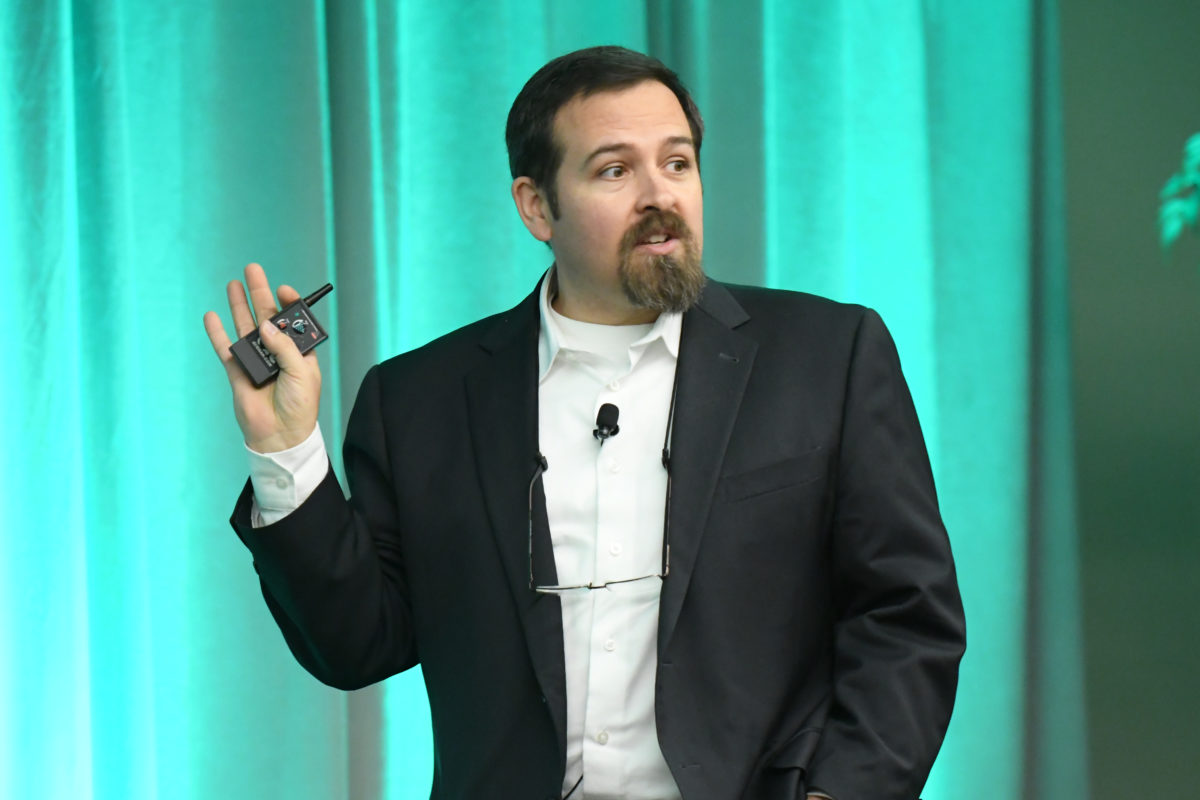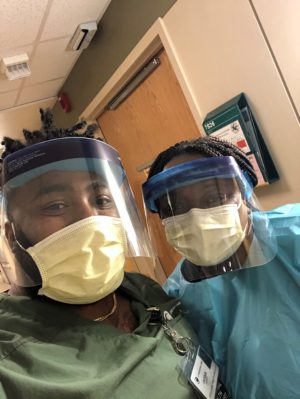“Burnout, at its core, is the impaired ability to experience positive emotion,” said J. Bryan Sexton, Ph.D., director of the Patient Safety Center at Duke University Health System, whose presentation, “Thriving vs. Surviving During Times of Change: The Science of Enhancing Resilience,” accompanied the annual Christiana Care Way Awards, Jan. 30 at the John H. Ammon Medical Education Center.
Burnout is widespread and contagious, and can affect the most determined, excellent and loving caregivers in an organization. But by changing our focus from negative to positive views, we form habits that help fight burnout every day in little ways that can make a big difference in our resilience and ability to deal with stress, he said.
Our focus determines our reality, said Sexton, one of the nation’s foremost experts on the relationship between culture and patient safety and the role of resilience in the health care profession. Our perceptions are influenced by how we feel. When we are too focused on negative aspects of a situation, we are unable to appreciate when things are going well.
“This impaired ability to experience positive emotion is the definition of burnout,” he said.
The fast-paced lecture and slide presentation drew affirmation, applause and laughter from an audience familiar with symptoms of burnout and strategies to combat the phenomenon and achieve greater resilience that are promoted by Christiana Care’s own Center for Provider Wellbeing.
Sexton’s talk was jam-packed with facts and insights about the problem of burnout and its solutions, including:
- Among critical care nurses, half are emotionally exhausted; two-thirds have difficulty sleeping; a quarter are considered clinically depressed.
- Burnout is associated with lower patient satisfaction, more infections and medication errors, higher standardized mortality ratios, shorter lifespan, lower quality of personal relationships, decreased immune system function, personal injury, traffic accidents, depression and suicide.
- Having to do more with less creates stress, and the longer we have to tolerate that stress, the more burnout increases.
- Burnout “lead weights” include long work hours, night-shift duties, conflicts with colleagues, fiscal debt and poor boundaries between work/home life.
- Burnout “band-aids” include spending time with spouse, social support, a positive learning environment, having a clinician as a parent, being a parent, and getting satisfaction from conversations with others, control over days off, and the quality of working relationships.
- Even people recognized for their tenacity, dedication and a strong sense of responsibility are vulnerable to burnout. Often our seemingly most dedicated professionals and even champions think they will make a difference if they just work harder. But the reality is that setting better boundaries leads to better outcomes.
- Burnout can be contagious. But resilience also can pass from colleague to colleague. Working with those who feel besieged can cause others to feel the same way, while working with people who are positive can help everyone combat burnout.
- Leaders can spread positivity by making a meeting agenda item of discussing one good thing that has happened so far this week and practicing “positive rounding,” or asking about what is going well in each work setting.
Dr. Sexton invited all Christiana Care caregivers to take part in an NIH-sponsored WISER study (Web-based Intervention for the Science of Enhancing Resilience) to determine the effectiveness of WISER in reducing stress and burnout among healthcare workers by visiting http://bit.ly/grattool.



